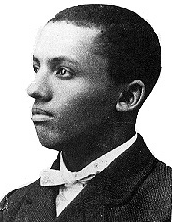The Equity Beat: The history of Black History Month

Courtesy of Wikimedia Commons
Historian Carter Woodson, who started “Negro History Week” in 1926.
February 1, 2017
What is Black History Month?
Black History Month, observed annually in the U.S. in February, aims to remember, celebrate and spotlight both historical and contemporary figures and events in the history and culture of black people worldwide.
The month is often observed with performances, speaker series and gatherings that discuss black history or celebrate black artists.
African-American historian Carter Woodson named the second week of February “Negro History Week” in 1926. In 1969, students at the Kent State University in Kent, Ohio, proposed an expansion of the week to Black History Month. Also known as African American History Month, it was first celebrated in 1970 and first recognized by the U.S. government in 1976.
For many, the month provides a time to recognize the important role that members of the African diaspora have played in American history and the progress of civil rights movements working to attain equality around the world.
“I saw the movie ‘Hidden Figures’ a few weeks ago, and that happened in the 1960s and they’re just now getting the recognition that they should have gotten years ago,” Wynter Chaverst (10) said, referring to the film about the African-American mathematicians and engineers who helped NASA win the space race. “Black History Month lets you know about all of the African-American people who have done so many amazing things in life and have never gotten any recognition for it.”
Although Black History Month has been criticized by people who say that it is counterproductive or unfair to have a month dedicated to the history of a single race, history teacher and Diversity Committee Mark Janda believes that it should continue to be celebrated until racial equality is attained.
“It was [started] to draw attention to a really important history that is so often left out of the history books,” Janda said. “Black History Month is a necessity as long as that story goes untold way too often. Once we reach a point where that story is just simply part of the American story and it truly gets celebrated, then the necessity for having Black History Month would be gone—but we’re a long, long way from that.”
Black History Month was officially recognized in Canada in 2008 and in the U.K., where it is observed in October, in 1987.
How to participate
There are many ways Californians can contribute to the spirit of Black History Month, such as discussing African-American achievements and history, supporting black-owned businesses, working to combat racism, participating in events affiliated with Black History Month and joining others in remembering the important contributions and culture of African-Americans.
Many organizations will host informative and celebratory events in honor of Black History Month. The California African American Museum in Los Angeles will host free public events throughout the month, for instance, and the California Jazz Conservatory in Berkeley will present a series dedicated to the month. The African American History House is located in San Jose.
Online or on television, several websites and news organizations will cover Black History Month with profiles, videos, podcasts or articles about black accomplishments, culture and history. Both PBS and KQED Public Television, for example, will be showing special broadcasts over the course of the month.


















![“[Building nerf blasters] became this outlet of creativity for me that hasn't been matched by anything else. The process [of] making a build complete to your desire is such a painstakingly difficult process, but I've had to learn from [the skills needed from] soldering to proper painting. There's so many different options for everything, if you think about it, it exists. The best part is [that] if it doesn't exist, you can build it yourself," Ishaan Parate said.](https://harkeraquila.com/wp-content/uploads/2022/08/DSC_8149-900x604.jpg)




![“When I came into high school, I was ready to be a follower. But DECA was a game changer for me. It helped me overcome my fear of public speaking, and it's played such a major role in who I've become today. To be able to successfully lead a chapter of 150 students, an officer team and be one of the upperclassmen I once really admired is something I'm [really] proud of,” Anvitha Tummala ('21) said.](https://harkeraquila.com/wp-content/uploads/2021/07/Screen-Shot-2021-07-25-at-9.50.05-AM-900x594.png)







![“I think getting up in the morning and having a sense of purpose [is exciting]. I think without a certain amount of drive, life is kind of obsolete and mundane, and I think having that every single day is what makes each day unique and kind of makes life exciting,” Neymika Jain (12) said.](https://harkeraquila.com/wp-content/uploads/2017/06/Screen-Shot-2017-06-03-at-4.54.16-PM.png)








![“My slogan is ‘slow feet, don’t eat, and I’m hungry.’ You need to run fast to get where you are–you aren't going to get those championships if you aren't fast,” Angel Cervantes (12) said. “I want to do well in school on my tests and in track and win championships for my team. I live by that, [and] I can do that anywhere: in the classroom or on the field.”](https://harkeraquila.com/wp-content/uploads/2018/06/DSC5146-900x601.jpg)
![“[Volleyball has] taught me how to fall correctly, and another thing it taught is that you don’t have to be the best at something to be good at it. If you just hit the ball in a smart way, then it still scores points and you’re good at it. You could be a background player and still make a much bigger impact on the team than you would think,” Anya Gert (’20) said.](https://harkeraquila.com/wp-content/uploads/2020/06/AnnaGert_JinTuan_HoHPhotoEdited-600x900.jpeg)

![“I'm not nearly there yet, but [my confidence has] definitely been getting better since I was pretty shy and timid coming into Harker my freshman year. I know that there's a lot of people that are really confident in what they do, and I really admire them. Everyone's so driven and that has really pushed me to kind of try to find my own place in high school and be more confident,” Alyssa Huang (’20) said.](https://harkeraquila.com/wp-content/uploads/2020/06/AlyssaHuang_EmilyChen_HoHPhoto-900x749.jpeg)









